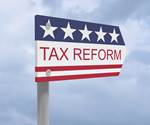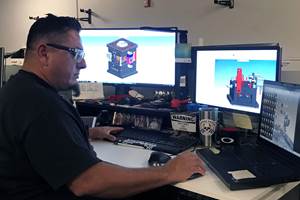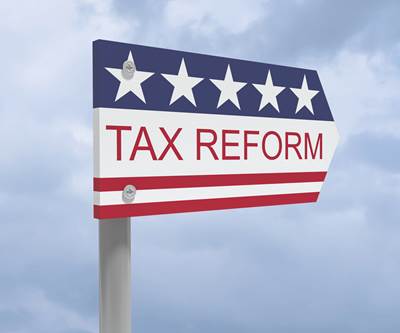Tax Reform Limits and Eliminates Popular Deductions
The Tax Cuts and Jobs Act of 2017 made several changes to the manner in which mold shop determine taxable income.
The Tax Cuts and Jobs Act of 2017 (the Act) limits, or outright eliminates, deductions that mold shops are accustomed to claiming. These include the Domestic Production Activities Deduction (eliminated), business entertainment expenditures (eliminated), interest expense (limited) and net operating losses (limited). The changes to these tax provisions will certainly have an impact on mold builders’ tax liabilities.
While the U.S. Treasury has yet to issue substantive guidance on these new provisions, the following is an overview of these limitations before the issuance of U.S. Treasury Regulations.
The Domestic Production Activities Deduction
Introduced in 2004, the Domestic Production Activities Deduction (DPAD) provides for a deduction equal to 9 percent of the taxable income that is associated with a mold shop’s U.S. manufacturing activities. The Act capped the deduction at 50 percent of the W-2s associated with the otherwise qualifying production activities. The Act eliminated this deduction for tax years beginning after December 31, 2017. For calendar-year mold shops, 2017 is the last year for which they are eligible to claim the Domestic Production Activities Deduction. Fiscal-year taxpayers will claim their last DPAD in the year that ends in 2018.
Entertainment Expenditures
Generally, mold shops could deduct 50 percent of both meal and entertainment expenditures that were directly related to or associated with their business before the Act. Also, meals provided to employees for the convenience of the employer were 100-percent deductible before the enactment of the Act. However, the Act disallows a deduction for business entertainment expenses effective January 1, 2018. So, all forms of business entertainment (including but not limited to sports tickets, fishing trips, golf outings and theater tickets) are no longer deductible beginning in 2018 and beyond.
The deduction for business meals is still allowable, subject to the 50-percent limit. Also, the Act eliminates the ability to deduct meals that are provided to employees for the convenience of the mold shop for amounts paid or incurred after December 31, 2025.
The U.S. Treasury is expected to issue guidance concerning these provisions, including how mold shops can split expenditures between meals and entertainment when both types of expenditures are associated with the same event.
While the Act is likely to reduce the federal income tax liabilities for most mold shops, mold builders should evaluate the changes to determine how the changes may impact their tax liabilities in 2018 and beyond.
Interest Expense
Historically, mold shops have been able to deduct their interest expense in the year that the expense was paid or accrued, without limitations. The Act limits the ability of some large mold shops to deduct their interest expense when it is paid or incurred. Mold shops with average annual gross receipts of more than $25 million for the prior three tax years may have limited ability to deduct their interest expense in tax years beginning after December 31, 2017.
The Act limits the deduction for the net interest expense (which is defined as interest expense, less interest income) that is incurred by a mold shop to 30 percent of the shop’s adjusted taxable income. For the first four years that this provision is in effect (tax years 2018 through 2021), adjusted taxable income means taxable income determined without regard to depreciation or amortization. For tax years 2022 and beyond, adjusted taxable income takes into account deductions for depreciation and amortization. Disallowed interest expense is carried forward to future tax years indefinitely.
Net Operating Losses
Before the Act, net operating losses (NOLs) could be carried back to the company’s two prior tax years to offset income in those years, allowing shops to request refunds from prior years. Also, NOLs could be carried forward for 20 tax years, allowing the shop to offset future income of the company. Further, there was no limitation on the amount of taxable income that shops could offset for regular income tax purposes before the Act.
For losses arising in tax years beginning after December 31, 2017, the Act limits the net-operating-loss deduction to 80 percent of the taxable income of the year in which the loss is carried. Also, the NOL carryback provisions are repealed for tax years ending after December 31, 2017, and shops may carry forward those NOLs indefinitely. As a result, a fiscal-year mold shop with a tax year ending after December 31, 2017 may not carry back NOLs arising in its tax year that includes December 31, 2017.
While the Act is likely to reduce the federal income tax liabilities for most mold shops, mold builders should evaluate the changes to determine how the changes may impact their tax liabilities in 2018 and beyond.
About the Contributor
Michael J. Devereux II, CPA, CMP is a partner and director of manufacturing, distribution and plastics industry services at Mueller Prost.
Related Content
Mold Design Review: The Complete Checklist
Gerardo (Jerry) Miranda III, former global tooling manager for Oakley sunglasses, reshares his complete mold design checklist, an essential part of the product time and cost-to-market process.
Read MoreHow to Improve Your Current Efficiency Rate
An alternative approach to taking on more EDM-intensive work when technology and personnel investment is not an option.
Read MoreMaking Mentoring Work | MMT Chat Part 2
Three of the TK Mold and Engineering team in Romeo, Michigan join me for Part 2 of this MMT Chat on mentorship by sharing how the AMBA’s Meet a Mentor Program works, lessons learned (and applied) and the way your shop can join this effort.
Read MoreThink Safety: Eliminate Hazards Throughout the Shop
The tooling community is taking advantage of new products for safer mold shops and molding facilities.
Read MoreRead Next
The Impact of Tax Reform on Capital Expenditures
The Tax Cuts and Jobs Act includes a provision for how mold builders should account for capital expenditures.
Read MoreHow to Use Strategic Planning Tools, Data to Manage the Human Side of Business
Q&A with Marion Wells, MMT EAB member and founder of Human Asset Management.
Read MoreReasons to Use Fiber Lasers for Mold Cleaning
Fiber lasers offer a simplicity, speed, control and portability, minimizing mold cleaning risks.
Read More





















